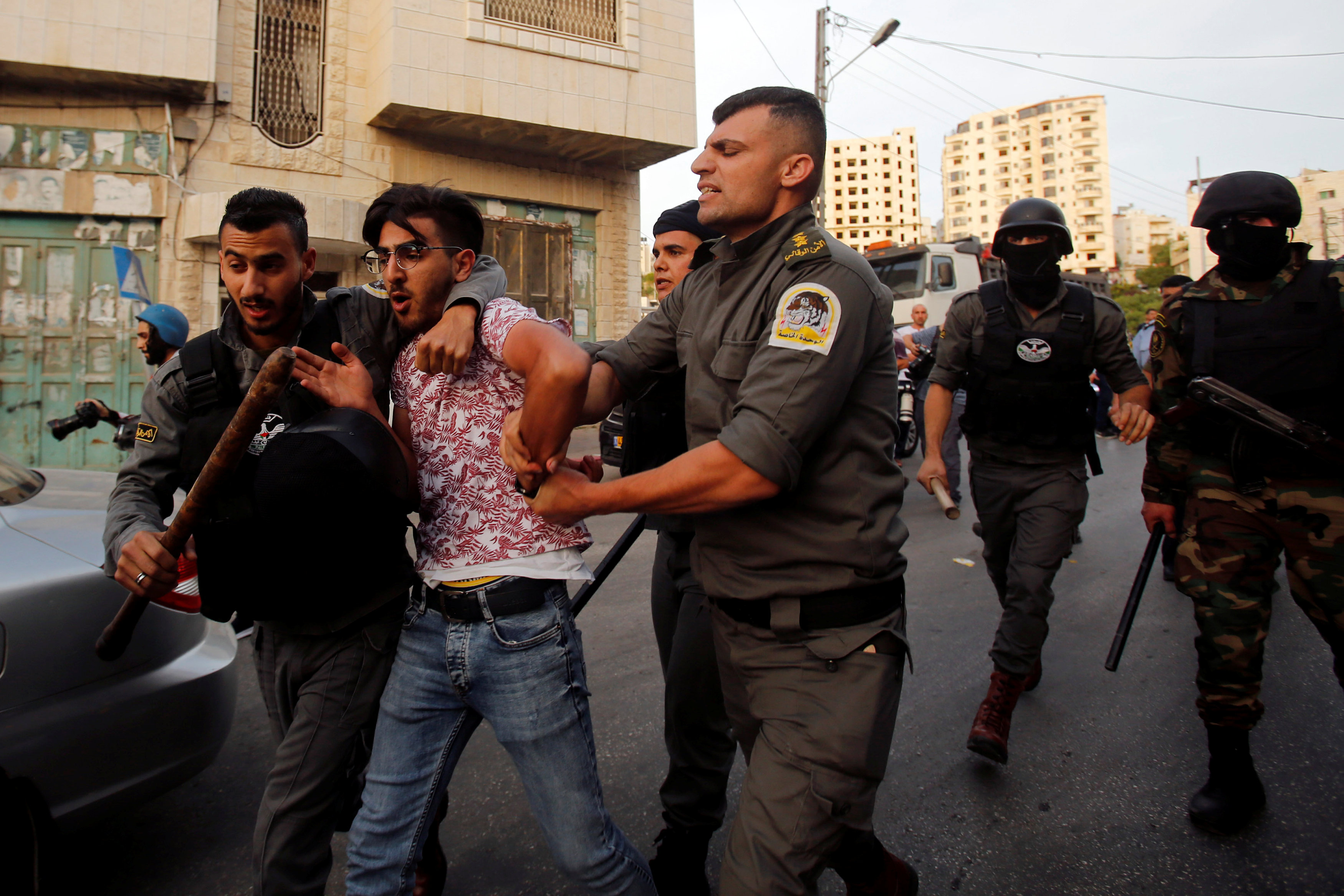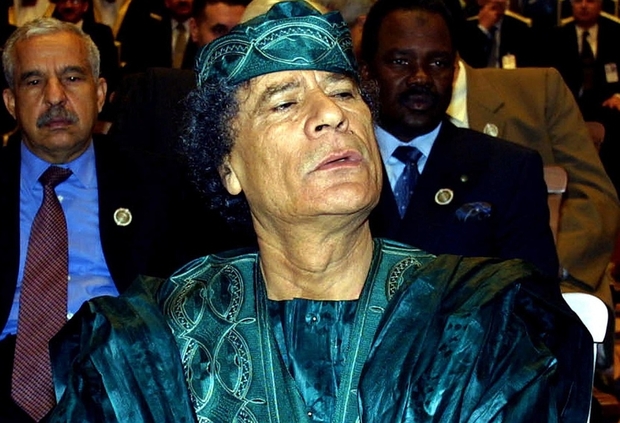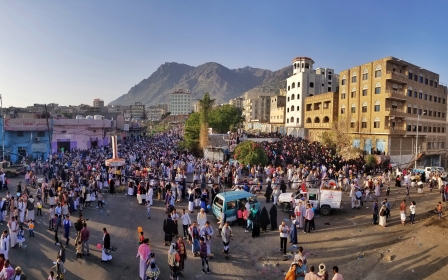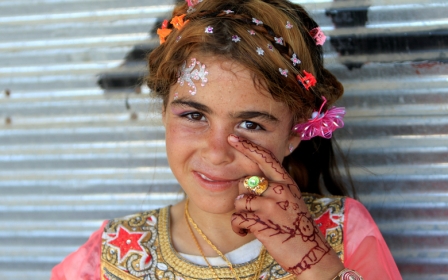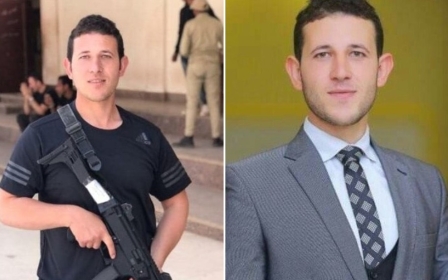Eid al-Fitr 2019: Five ways politics and the moon divided the Middle East

Eid is supposed to be a time of unity and peace, as people come together to celebrate at the end of Ramadan, the Islamic holy month of fasting.
But in the Arab world, politics cast its heavy shadow across this year's celebrations, leaving Muslims confused about when to celebrate.
New MEE newsletter: Jerusalem Dispatch
Sign up to get the latest insights and analysis on Israel-Palestine, alongside Turkey Unpacked and other MEE newsletters
While Thursday was the third and last day of Eid in Saudi Arabia, Qatar, UAE and Turkey, it ends on Friday in Jordan, Palestine and Iran. In some parts of Iraq and Syria, it will end on different days.
In Yemen, it will even come to completion on different days for members of the same family under the same roof.
Eid al-Fitr - which means "the festival of breaking the fast" in Arabic - is declared when the new moon is sighted in the sky, meaning that four weeks of fasting between dawn and sunset has ended.
In many Arab and Muslim countries, it heralds the start of a three-day public holiday. But when festivities begin depends primarily on how religious scholars interpret the Islamic texts, the Quran and Sunnah.
Some say the new moon needs to be sighted by the naked eye only, while other scholars say that using astronomy combined with sighting determines the announcement of the beginning and end of Ramadan, and the start of Eid.
Geography also affects the timings. In some parts of the Arab world, such as Morocco, the new moon appears for less than half an hour after sunset, making astronomy the only possible way to judge whether the new moon of Shawwal, the month that follows Ramadan, has begun.
These differences in interpretation allow room for some countries to use Eid al-Fitr to stress political alliances. Here's how that has happened this year.
Egypt
On Monday, Egypt’s mufti, the highest religious authority in the country, announced that Eid would begin on Wednesday.
Hours later, government-funded national newspapers Al-Ahram and Akhbar al-Youm published stories saying Eid would be held on Tuesday because an astronomical authority had spotted the moon, leaving millions of Egyptians in limbo.
Although Egypt is an ally of Saudi Arabia and the UAE, which support the government of President Abdel Fattah al-Sisi, Egyptian religious scholars compete with Saudi Arabian ones, as Egypt hosts the oldest Islamic university, Al-Azhar. In Saudi Arabia, the first day of Eid was Tuesday.
In the end, the first day of Eid in Egypt was held on Wednesday.
Palestine
Palestinian security forces arrested ten members of the Tahir Party, a Salafist group, after they announced on Tuesday morning the Eid prayer in Al-Abrar mosque in Hebron, in the south of the occupied West Bank.
They beat the group with batons and prevented them from performing the Eid prayer.
The Tahrir Party is prohibited in most Arab countries. The spokesperson of the security forces said that members of the party had breached the decision of the Palestinian Authority's grand mufti, who announced that Eid was on Wednesday.
Libya
Libya's ongoing conflict and divisions led to confusion around the Eid announcement.
Libya's religious authority, the Waqf, declared that Eid was on Wednesday. Then hours later, it reversed its announcement after the Gulf states declared Eid would begin on Tuesday, saying that the new crescent of Shawwal was seen in Sirte, Sabha, and the Ben Jawad and Bani Walid areas.
The United Arab Emirates, Saudi Arabia and Qatar support various armed factions in Libya's conflict.
Before he was overthrown in 2011, longtime ruler Muammar Gaddafi cancelled the authority of Libya’s mufti to announce the start and end of Ramadan.
After he came to power in 1969, Gaddafi became the sole authority for announcing Eid al-Fitr and assigned the task to mark it to astronomers, who used observations made months in advance to declare when the new moon of Shawwal appeared.
Gaddafi’s Eid was always at odds with Saudi Arabia’s, one of Libya's arch-enemies.
Yemen
In Yemen, a dispute between rival governments over the sighting of the new moon meant that for the first time in the country’s history, Yemenis celebrated Eid on different days this year.
The squabble started on Monday when authorities with the pro-Hadi government saw the crescent and said Eid would be on Tuesday. But pro-Houthi government officials in Sanaa declared that they had not seen it, and called Eid for Wednesday.
As both governments urged their followers to observe their Eid, Yemenis say the disagreement created confusion and unnecessary strife after four years of war.
Syria
It’s become customary since the start of Syria’s civil war for government and opposition factions to celebrate Eid on different days.
With the opposition-held areas shrinking as the forces of Bashar al-Assad advance, most of the country officially began Eid on Wednesday. However towns and villages in Idlib, northern Hama and north and west Aleppo celebrated Eid on Tuesday.
Turkey
Turkey celebrated Eid on Tuesday, but the ongoing debate of what to call Eid al-Fitr resurfaced this year.
Turks with more national secular views repeated their request this year to change the name of Eid from "Ramadan Eid" to "Sweet Eid."
For this group, "Ramadan Eid" has a religious and Arabic inflection, and they believe it should be Turkified to the more nationalist "Sweet Eid."
While the debate continues, "Ramadan Eid" remains the preferred name for the public holiday in Turkey.
Middle East Eye delivers independent and unrivalled coverage and analysis of the Middle East, North Africa and beyond. To learn more about republishing this content and the associated fees, please fill out this form. More about MEE can be found here.


